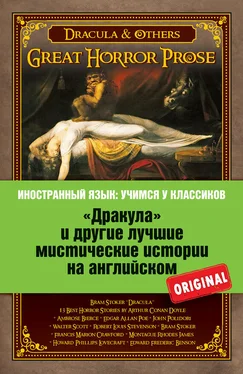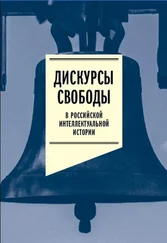They were so nearly at an end of their abhorred task that they judged it wisest to complete it in the dark. The coffin was exhumed and broken open; the body inserted in the dripping sack and carried between them to the gig; one mounted to keep it in its place, and the other, taking the horse by the mouth, groped along by wall and bush until they reached the wider road by the Fisher’s Tryst. Here was a faint, diffused radiancy, which they hailed like daylight; by that they pushed the horse to a good pace and began to rattle along merrily in the direction of the town.
They had both been wetted to the skin during their operations, and now, as the gig jumped among the deep ruts, the thing that stood propped between them fell now upon one and now upon the other. At every repetition of the horrid contact each instinctively repelled it with the greater haste; and the process, natural although it was, began to tell upon the nerves of the companions. Macfarlane made some ill-favoured jest about the farmer’s wife, but it came hollowly from his lips, and was allowed to drop in silence. Still their unnatural burden bumped from side to side; and now the head would be laid, as if in confidence, upon their shoulders, and now the drenching sackcloth would flap icily about their faces. A creeping chill began to possess the soul of Fettes. He peered at the bundle, and it seemed somehow larger than at first. All over the countryside, and from every degree of distance, the farm dogs accompanied their passage with tragic ululations; and it grew and grew upon his mind that some unnatural miracle had been accomplished, that some nameless change had befallen the dead body, and that it was in fear of their unholy burden that the dogs were howling.
‘For God’s sake,’ said he, making a great effort to arrive at speech, ‘for God’s sake, let’s have a light!’
Seemingly Macfarlane was affected in the same direction; for, though he made no reply, he stopped the horse, passed the reins to his companion, got down, and proceeded to kindle the remaining lamp. They had by that time got no farther than the cross-road down to Auchenclinny. The rain still poured as though the deluge were returning, and it was no easy matter to make a light in such a world of wet and darkness. When at last the flickering blue flame had been transferred to the wick and began to expand and clarify, and shed a wide circle of misty brightness round the gig, it became possible for the two young men to see each other and the thing they had along with them. The rain had moulded the rough sacking to the outlines of the body underneath; the head was distinct from the trunk, the shoulders plainly modelled; something at once spectral and human riveted their eyes upon the ghastly comrade of their drive.
For some time Macfarlane stood motionless, holding up the lamp. A nameless dread was swathed, like a wet sheet, about the body, and tightened the white skin upon the face of Fettes; a fear that was meaningless, a horror of what could not be, kept mounting to his brain. Another beat of the watch, and he had spoken. But his comrade forestalled him.
‘That is not a woman,’ said Macfarlane in a hushed voice.
‘It was a woman when we put her in,’ whispered Fettes.
‘Hold that lamp,’ said the other. ‘I must see her face.’
And as Fettes took the lamp his companion untied the fastenings of the sack and drew down the cover from the head. The light fell very clear upon the dark, well-moulded features and smooth-shaven cheeks of a too familiar countenance, often beheld in dreams of both of these young men. A wild yell rang up into the night; each leaped from his own side into the roadway; the lamp fell, broke and was extinguished; and the horse, terrified by this unusual commotion, bounded and went off toward Edinburgh at a gallop, bearing along with it, sole occupant of the gig, the body of the dead and long-dissected Gray.
Bram Stocker
The Judge’s House
When the time for his examination drew near Malcolm Malcolmson made up his mind to go somewhere to read by himself. He feared the attractions of the seaside, and also he feared completely rural isolation, for of old he knew its charms, and so he determined to find some unpretentious little town where there would be nothing to distract him. He refrained from asking suggestions from any of his friends, for he argued that each would recommend some place of which he had knowledge, and where he had already acquaintances. As Malcolmson wished to avoid friends he had no wish to encumber himself with the attention of friends’ friends and so he determined to look out for a place for himself. He packed a portmanteau with some clothes and all the books he required, and then took ticket for the first name on the local time-table which he did not know.
When at the end of three hours’ journey he alighted at Benchurch, he felt satisfied that he had so far obliterated his tracks as to be sure of having a peaceful opportunity of pursuing his studies. He went straight to the one inn which the sleepy little place contained, and put up for the night. Benchurch was a market town, and once in three weeks was crowded to excess, but for the reminder of the twenty-one days it was as attractive as a desert. Malcolmson looked around the day after his arrival to try to find quarters more isolated than even so quiet an inn as ‘The Good Traveller’ afforded. There was only one place which took his fancy, and it certainly satisfied his wildest ideas regarding quiet; in fact, quiet was not the proper word to apply to it – desolation was the only term conveying any suitable idea of its isolation. It was an old, rambling, heavy-built house of the Jacobean style [168], with heavy gables and windows, unusually small, and set higher than was customary in such houses, and was surrounded with a high brick wall massively built. Indeed, on examination, it looked more like a fortified house than an ordinary dwelling. But all these things pleased Malcolmson. ‘Here,’ he thought, ‘is the very spot I have been looking for, and if I can only get opportunity of using it I shall be happy.’ His joy was increased when he realized beyond doubt that it was not at present inhabited.
From the post-office he got the name of the agent, who was rarely surprised at the application to rent a part of the old house. Mr. Carnford, the local lawyer and agent, was a genial old gentleman, and frankly confessed his delight at anyone being willing to live in the house.
‘To tell you the truth,’ said he, ‘I should be only too happy, on behalf of the owners, to let anyone have the house rent free, for a term of years if only to accustom the people here to see it inhabited. It has been so long empty that some kind of absurd prejudice has grown up about it, and this can be best put down by its occupation – if only,’ he added with a sly glance at Malcolmson, ‘by a scholar like yourself, who wants its quiet for a time.’
Malcolmson thought it needless to ask the agent about the ‘absurd prejudice’; he knew he would get more information, if he should require it, on that subject from other quarters. He paid his three months’ rent, got a receipt, and the name of an old woman who would probably undertake to ‘do’ for him, and came away with the keys in his pocket. He then went to the landlady of the inn, who was a cheerful and most kindly person, and asked her advice as to such stores and provisions as he would be likely to require. She threw up her hands in amazement when he told her where he was going to settle himself.
‘Not in the Judge’s House!’ she said, and grew pale as she spoke. He explained the locality of the house, saying that he did not know its name. When he had finished she answered:
‘Aye, sure enough – sure enough the very place! It is the Judge’s House sure enough.’ He asked her to tell him about the place, why so called, and what there was against it. She told him that it was so called locally because it had been many years before – how long she could not say, as she was herself from another part of the country, but she thought it must have been a hundred years or more – the abode of a judge who was held in great terror on account of his harsh sentences and his hostility to prisoners at Assizes [169]. As to what there was against the house she could not tell. She had often asked, but no one could inform her, but there was a general feeling that there was something , and for her own part she would not take all the money in Drinkwater’s Bank and stay in the house an hour by herself. Then she apologized to Malcolmson for her disturbing talk.
Читать дальше






![Коллектив авторов - Все в прошлом [Теория и практика публичной истории]](/books/430176/kollektiv-avtorov-vse-v-proshlom-teoriya-i-praktika-thumb.webp)





